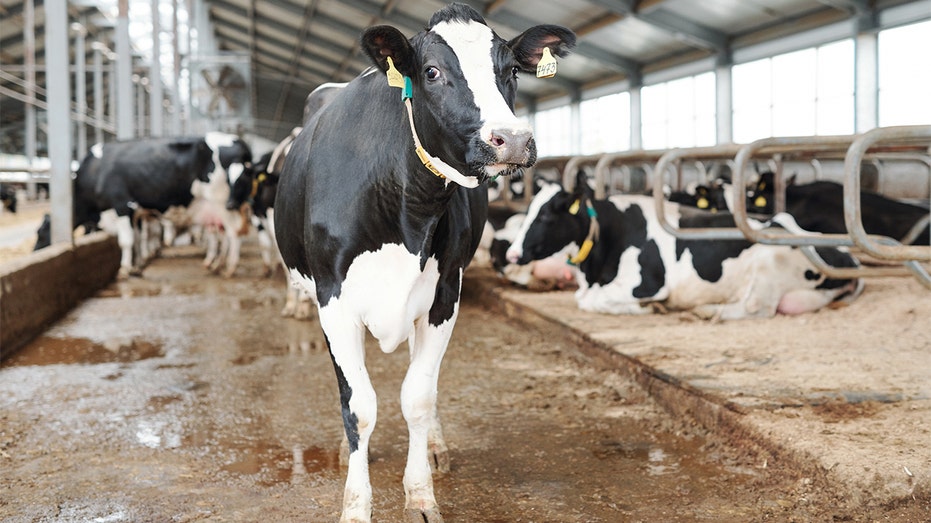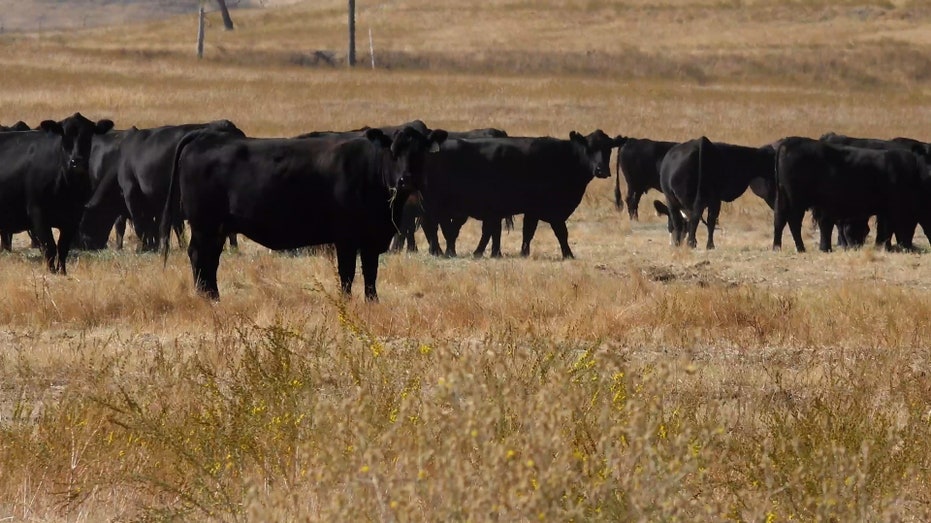New Zealand government proposes taxing cow burps, pee to tackle climate change
New Zealand has approximately 10 million beef and dairy cattle and 26 million sheep
'Fighting climate change’ a ‘stupid expression’: Greenpeace co-founder
Greenpeace co-founder Patrick Moore discusses the ongoing politicization of climate change along with Patagonia founder Yvon Chouinard’s decision to give away ownership of his $3 billion company to combat climate change.
New Zealand announced Tuesday a proposal to tax greenhouse gases farm animals produce, including burping and peeing, as part of its efforts to address climate change.
According to the country's government, the proposed tax on farms would be the first in the world. It also said farmers should be able to regain the cost by upping the prices of climate-friendly products.
The move drew the ire of New Zealand farmers, with Federated Farmers, the industry's main lobby group, saying the plan would "rip the guts out of small-town New Zealand" and result in trees replacing farms.
Federated Farmers President Andrew Hoggard said farmers had been attempting to work with the government for more than two years on a plan to reduce emissions reduction without decreasing food production.
CALIFORNIA'S DROUGHT WITHERS TOMATOES, PUSHING GROCERY PRICES HIGHER

New Zealand announced Tuesday a proposal to tax greenhouse gases farm animals produce, including burping and peeing, as part of its efforts to address climate change. (iStock / iStock)
"Our plan was to keep farmers farming," Hoggard said, adding that farmers would instead be selling their farms "so fast you won’t even hear the dogs barking on the back of the ute (pickup truck) as they drive off."
Opposition lawmakers from the conservative ACT Party said the proposal would increase emissions around the world by moving farming to other countries less efficient at producing food.
New Zealand’s farming industry is crucial to the country's economy, with dairy products being the nation’s largest export earner.
The country has approximately 10 million beef and dairy cattle and 26 million sheep, compared to just five million people.
About half of New Zealand's greenhouse gas emissions come from farms. And the reasoning behind the proposal potentially helping with climate change is based on the idea that farm animals produce gasses that warm the planet, particularly methane from cattle burps and nitrous oxide from their urine.
New Zealand's government has vowed to cut greenhouse gas emissions and make the country carbon-neutral by 2050. As part of that plan, the country said it will reduce methane emissions from farm animals by 10% by 2030 and by up to 47% by 2050.

New Zealand’s farming industry is crucial to the country's economy, with dairy products being the nation’s largest export earner. (AP Images)
FAN WHO CAUGHT AARON JUDGE HISTORIC HOMER MAY CATCH BIG TAX BILL
Farmers would be required to begin paying for emissions in 2025 under the new proposed plan, with the pricing not yet finalized.
Prime Minister Jacinda Ardern said the money collected from the proposed tax would go toward the farming industry to fund new technology, research and incentive payments for farmers.
"New Zealand's farmers are set to be the first in the world to reduce agricultural emissions, positioning our biggest export market for the competitive advantage that brings in a world increasingly discerning about the provenance of their food," Ardern said.
Agriculture Minister Damien O'Connor said the proposal presents an exciting opportunity for the country and its farmers.

Prime Minister Jacinda Ardern said the money collected from the proposed tax would go toward the farming industry to fund new technology, research and incentive payments for farmers. (FOX / Fox News)
CLICK HERE TO READ MORE ON FOX BUSINESS
"Farmers are already experiencing the impact of climate change with more regular drought and flooding," O'Connor said. "Taking the lead on agricultural emissions is both good for the environment and our economy."
The liberal Labour government's plan mirrors a similar failed proposal made by a previous Labour government in 2003 to tax farm animals for their methane emissions.
At the time, farmers had slammed the idea, and political opposition criticized it as a "fart tax." Most of the methane emissions, however, come from burping, not farting. The New Zealand government eventually abandoned the proposal.
The Associated Press contributed to this report.





















